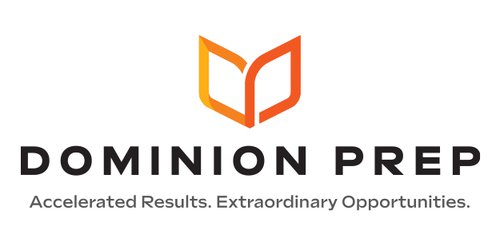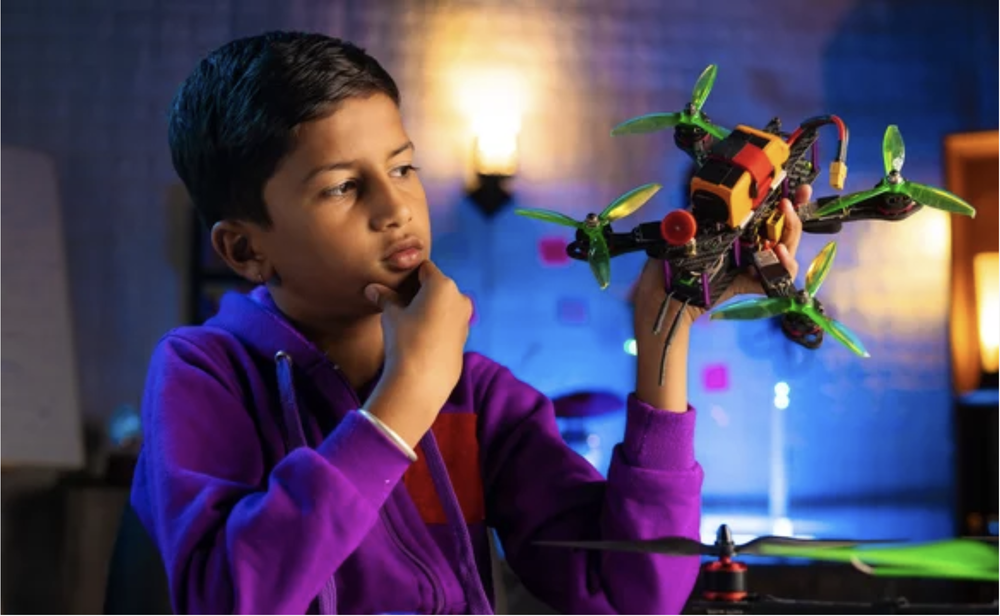TAKE THE QUIZ: Gifted and Talented or High-Achieving Student Schooling Quiz
We’ll never know, will we? What the world could have been, only if…
If you have a gifted child that never makes it to that job, or that role, or inventing that thing or piece of art that puts them stunningly to the forefront, all because they just weren’t believed in enough, then the world will most certainly be just that much dimmer than it might have been.
An underchallenged student in any school equates to the removal of their eventual full contribution to the larger society.
Goodbye to that student’s will to innovate, to invent, to bring order and life to the economy, lifting all of society.
With America, amid many serious challenges, we need every single one of our brightest and most talented students to reach their full potential in every field. Yet, remarkably, some programs for the gifted and talented are being removed, minimized, or “unafforded.”
Worse, a sort of twisted logic considers such programs to lessen equity or diversity when the truth is the opposite. Minds are diversely capable. Some so greatly more than others, that to those others the great minds stand out in stark relief as unfathomable – which is perhaps why the nurture of greatness is so hard to endure. Lack of understanding is a very close cousin to jealousy.
The failure to support gifted and talented programs directly disputes the very ideas of equity and diversity. Students are forced to be the same and cannot be diverse – mentally, educationally, or socially by our actions and lack of support. Those who have perhaps never languished in classes that bored them out of their minds and so joked around and got caught up in disciplinary issues will pretend this:
Well, those super gifted students should just get through their classes and move on up to higher ed. Right. Tweens, teens, and youngsters find life just peachy with hours on end of idle boredom or mild attempts at placating with extra things to study. They feel imprisoned, slowed, and taken out of the mainstream of life and thought and discovery. For years. There is a high likelihood that a lack of engagement of minds contributes mightily to angst, even criminality.
One mother decided to champion her child’s intellect, to disagree with the idea that her child was a disciplinary issue or inadequate in any way. She was the mother of Thomas Edison, one of America’s genius inventors. You’ll find this story all over social media:
One day, as a small child, Thomas Edison came home from school and gave a paper to his mother. He said to her “Mom, my teacher gave this paper to me and told me only you are to read it. What does it say?”
Her eyes welled with tears as she read the letter out loud to her child…
“Your son is a genius. This school is too small for him and doesn’t have good enough teachers to train him. Please teach him yourself.”
Many years after Edison’s mother had died, he became one of the greatest inventors of the century. One day he was going through a closet, and he found the folded letter that his old teacher wrote to his Mother that day. He opened it.
“Your son is mentally deficient. We cannot let him attend our school anymore. He is expelled.”
While this story is somewhat sensationalized, it is true that Thomas Edison was largely taught by his mother. During a small interlude of attending a school, his teacher called him an “addled child,” unable to think clearly. This infuriated his mother who vehemently disagreed. An actual account of what Thomas Edison himself said was from an interview published in the T.P’s Weekly in 1907:
"One day I overheard the teacher tell the inspector that I was 'addled' and it would not be worthwhile keeping me in school any longer. I was so hurt by this last straw that I burst out crying and went home and told my mother about it. Then I found out what a good thing a good mother is. She came out as my strong defender. Mother love was aroused, mother pride wounded to the quick. She brought me back to the school and angrily told the teacher that he didn’t know what he was talking about, that I had more brains than he himself, and a lot more talk like that. In fact, she was the most enthusiastic champion a boy ever had, and I determined right then that I would be worthy of her and show her that her confidence was not misplaced."
How would our world be different if not for Thomas Edison? Possibly no lightbulbs. No movies. No recorded music, and a lot of other things.
What a dull world that would have been – and dark. See more about Edison here.
The Big Question
Is your child challenged? Important clues may be what they talk about, if anything, in relation to school. If it all seems to involve the social climate and not the academics, there could be something wrong there. True learning requires effort. Without a challenge, there is no struggle academically and their attention will be dispersed to other, more mediocre things. It may even result in lower academic marks out of the sheer level of boredom. And your child will not lead their best life.
It's important to also realize that gifted and talented have wide definitions, even shifting from State to State and including high achievers. Your child may have great gifts and talents overlooked by our rather ancient scholastic patterns. Your faith should be unwavering in that they have something about themselves that is unique.
Your mission, should you choose to accept it, is to help find and build whatever that is with your child.
As you consider whether your child could be gifted, talented or a high achiever, you need to know that not all schooling programs are the same. Some that are seemingly built to cater to these types of students are not, not really. You need not wonder why – the answer is simple. Who gains when the work is touted as suited to gifted and high achieving students and is truly that challenging? The student, of course. Watering down very strenuous academics while presenting them as more challenging, as is the case with a burgeoning field of altered college classes, or merely supplementing normed materials with some extra work, may fill seats, but not minds. Cheapening the path lowers the experience for learners, enters a falsity that may later prove fatal in higher education or profession, and casts doubt on intelligence itself. For, if a student remains unchallenged, their sense of contribution and engagement is lessened, they feel less alive, and they then risk losing themselves in things more trivial. Classic cases of stress, addictions, and other distractions have entrance at precisely this point. A waste of epic proportions.
A known key to gifted, talented, and high achiever programs must be a coincidence with others of ability similarity, led by actual teachers in live learning situations, not just check-ins as a student progresses through materials in solitary study, a moving dot on someone’s dashboard. A truly electric energy ensues when the race to achieve is not entirely lopsided, when students are amongst peers. Remarkably, this is true for all ability levels roughly cohorted or else we would not partition even by age. In this moment of AI bursting forth, our further partitioning by gift or talent or achievement drive gives humans at least a chance of balancing technology by extending our forward guard of intellect.
An additional synergy happens when a watchful teacher can see on a student’s face some introspection during discussion and questioning, a certain eye flick indicating the mind has lit upon a scrap of awareness or perhaps built a new neural bridge. The watchful teacher can elicit those ideas to be shared -- sparking ever more higher reasoning amongst a cohort.
Social learning must be a part of intellectual challenge for all levels of learner ability because it solidifies our knowledge certainty. It is not enough to set gifted, talented, and high achievers aside in independent study, alone. Dominion Prep is one schooling program that gets this right through live teaching interaction and a Socratic questioning method as one means of student engagement.
Your gifted, talented, and/or high achiever, even when “twice exceptional” with one or more learning disabilities, immersed in an environment where they are expected to arrive fully, will feel they are seen, that they can do this work, that their contribution in learning is helping them live – and for more than themselves alone.
TAKE THE QUIZ: Gifted and Talented or High-Achieving Student Schooling Quiz

Dominion Prep (DominionPrep.Org ) provides students with a higher level of accelerated learning using Face-to-Face mastery Socratic instruction in small group classes. It is now available across America at a low cost because of the advanced curriculum developed and remote learning systems employed. The program has over 15 years of Cognia – AdvancED - Southern Association of Colleges and Schools accreditation at score levels exceeding 300 points, which places the program at elite learning levels. Dominion Prep accreditations are recognized in all 50 US States and over 80 countries. Dominion Prep is also recognized by the NCAA, and the US Federal government and enjoys educational and research partnerships, like Baylor University and its Gifted TIP program. While classes are available supplementally, graduates are often known to receive college admissions to their school of choice with scholarships regularly exceeding $100,000.
Like leading gifted researcher professor Dr. Todd Kettler ( https://soefaculty.baylor.edu/todd-kettler/ ) says, “ It’s a great program, it is what people need, they can access it from anywhere. I even use it for my son. While the initial price is a deal, people in the states adding school choice can even receive it free.”











